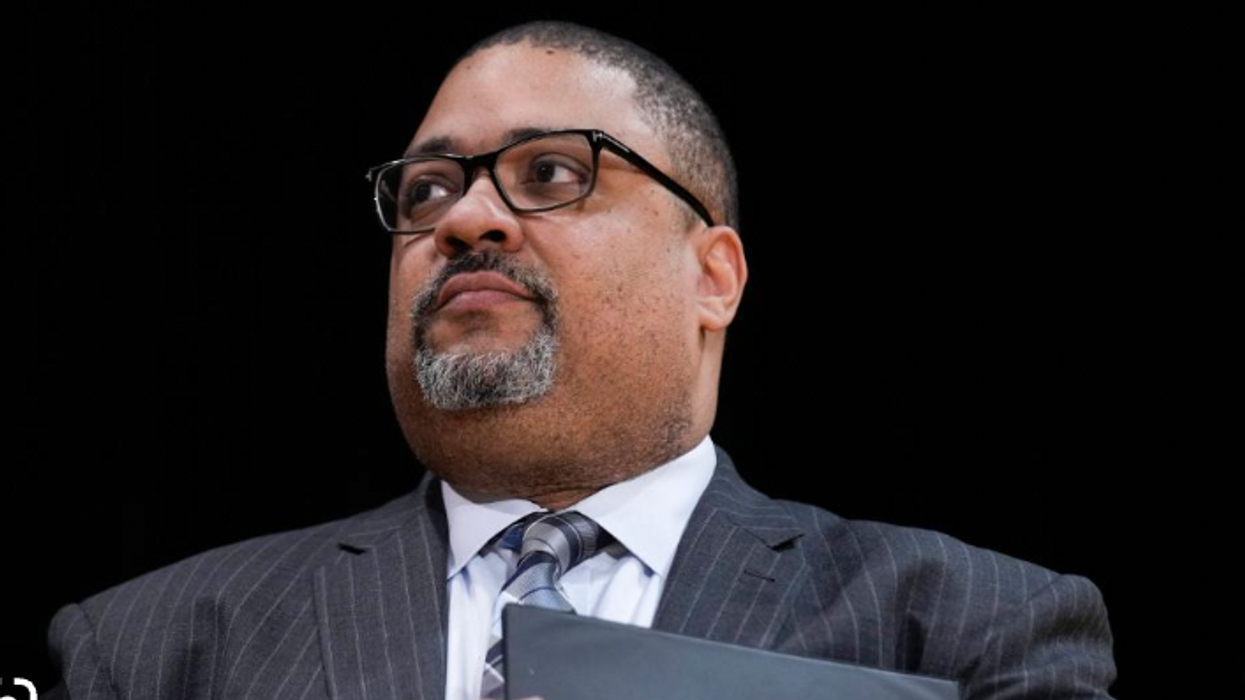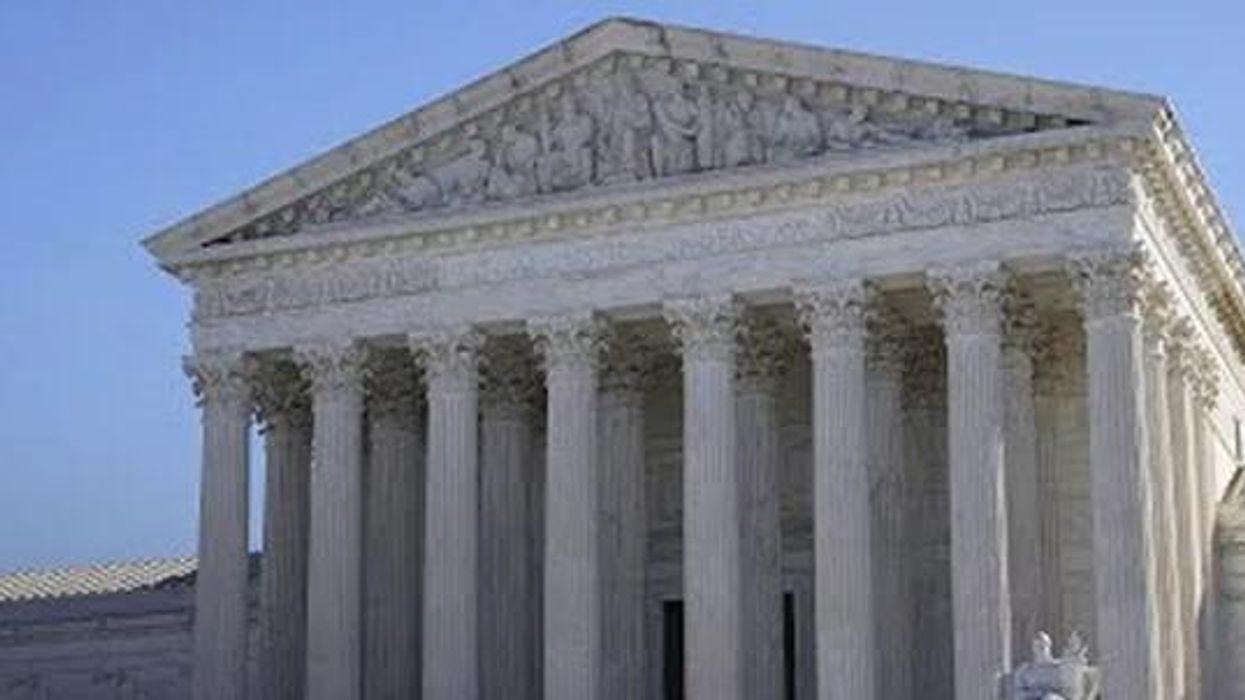'We'll Kill You All': MAGA Goons Post Disturbing Threats To Alvin Bragg
The office of Manhattan District Attorney Alvin Bragg has been inundated with death threats following former President Donald Trump's 34 felony convictions, according to new reporting.
NBC News reported Friday that in the last three months alone, there have been dozens of death threats made against Bragg, his family and his staff, according to the New York Police Department (NYPD). And since April, the DA's office has forwarded more than 500 threatening phone calls and letters to the NYPD. At least two bomb threats were phoned in to the residences of two people involved with the case on the first day of Trump's New York criminal trial.
NYPD Sergeant Nicholas Pistilli noted that some of the threats contained overtly violent messaging like "we will kill you all," "you are dead," "your life is done" and "RIP," among others. Pistilli also said Bragg's office received "a post showing sniper shots on people involved in this case or a family member of such a person, and a post disclosing the home address of a DA Office employee."
MSNBC host Nicolle Wallace also pointed out that some of the death threats are racist in nature, as Bragg is Black. One threat sent to Bragg's office showed an image of Bragg's neck in a noose, along with a threatening message. In a Friday segment, legal analyst Lisa Rubin told Wallace that when she spoke with investigators, they confirmed to her that some of the threats were so graphic in nature that they were unwilling to share them with reporters.
"The universe of threats to Alvin Bragg, and the people around him working with him are far larger in all likelihood than that which we can know," she said. "As bad as the images are that I saw today, and had to describe for you and our colleagues, I want us all to pause and think about: If those are the ones that they chose to share with us, imagine what else is out there that we haven't seen."
"These are just so upsetting to everyone who has seen them and everyone who has lived with them," Rubin said.
While Trump has been convicted on all counts in the original indictment, the gag order Judge Juan Merchan imposed has remained in place. The former president's legal team unsuccessfully argued to have it lifted, suggesting Trump is chomping at the bit to get back to attacking the groups protected by the order like jurors, witnesses, court staff and their families.
The gag order will stay in place until Trump is sentenced on July 11, and the ex-president is still banned from attacking jurors, court staff and family members of both. However, Bragg has agreed that the gag order can be lifted for witnesses, allowing Trump to attack his former attorney Michael Cohen and adult film star and director Stormy Daniels.
"Now that the jury has delivered a verdict, however, the compelling interest in protecting the witnesses’ ability to testify without interference is no longer present," Bragg's office told NBC. "The relevant balancing of interests has thus shifted from the time that this Court issued the orders restricting defendant’s extrajudicial statements."
Reprinted with permission from Alternet.












